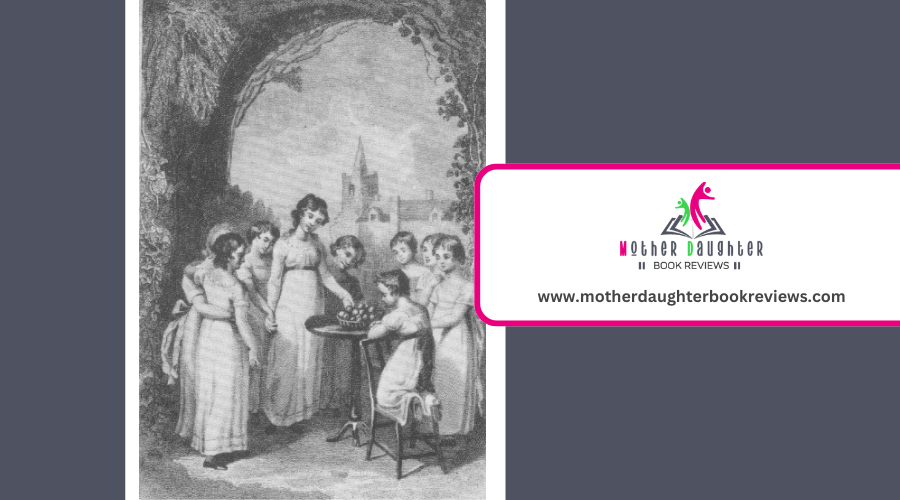Education and Morality in The Governess by Sarah Fielding

In "The Governess," the tales don't just tell stories; they teach you about honesty, kindness, and resilience through the characters' choices and dilemmas. Friendship and community play pivotal roles, highlighting the importance of mutual support and compassion. Self-reflection and emotional resilience are key themes, encouraging you to evaluate your actions thoughtfully. Furthermore, the book advocates for continuous learning and curiosity, prompting you to investigate and grow.
Moral Instruction Through Storytelling
Many classic tales have taught us significant moral lessons through their engaging narratives. For instance, in "The Governess" by Sarah Fielding, each chapter offers a distinct moral lesson, subtly woven into the lives of the characters. This method of teaching through storytelling makes the lessons more memorable and impactful.
You'll find that stories often personify virtues and vices, making them relatable. When characters make poor choices, you see the consequences unfold, and when they act virtuously, they're often rewarded. This narrative approach helps you understand the importance of moral values in a natural and engaging way.
Moreover, storytelling allows for a deeper emotional connection. You're more likely to empathize with characters and internalize the lessons they learn. By seeing the world through their eyes, you gain a broader perspective on right and wrong. So, next time you read a classic tale, pay attention to the moral instruction embedded within. It's more than just a story; it's a guide to living a virtuous life.
The Power of Friendship
While stories often teach us moral values, they also highlight the importance of relationships, particularly the power of friendship. In "The Governess," you'll notice how the young girls form bonds that aren't just about companionship but also about mutual growth and support. Friendship here becomes a cornerstone for learning and personal development.
As you read, you'll see the characters rely on each other during challenging times. They share their joys and sorrows, creating a support system that helps them navigate the complexities of growing up. This mutual support fosters a sense of belonging and confidence, allowing each girl to express herself freely and learn from her peers.
Moreover, friendship in "The Governess" isn't just about emotional support; it's a catalyst for moral and intellectual growth. When one girl struggles with a lesson or moral dilemma, her friends step in to offer guidance and different perspectives. This collaboration teaches the value of diverse viewpoints and collective problem-solving.
Importance of Self-Reflection
Self-reflection is a powerful tool for personal growth and understanding. When you take the time to look inward, you gain insights into your actions, thoughts, and emotions. This process allows you to recognize your strengths and identify areas for improvement. In *The Governess*, the characters often engage in self-reflection, which helps them develop virtues like patience, humility, and honesty.
By setting aside moments for self-reflection, you can evaluate your daily choices and behaviors. Ask yourself questions like, "Why did I react that way?" or "What could I have done differently?" These inquiries encourage a deeper understanding of your motivations and can lead to more thoughtful and deliberate actions in the future.
Additionally, self-reflection fosters a sense of accountability. You learn to take responsibility for your mistakes and celebrate your achievements. This practice not only improves your self-awareness but also builds a foundation for continuous personal growth.
Incorporating self-reflection into your routine doesn't require a significant time investment. Even a few minutes each day can make a substantial difference. By embracing this habit, you can navigate life's challenges with greater clarity and purpose, much like the characters in *The Governess*.
Lessons in Compassion
Compassion serves as a cornerstone for meaningful relationships and personal fulfillment. When you show compassion, you're not just helping others; you're also enriching your own life. In the classic "The Governess," compassion is a recurring theme that teaches valuable lessons. As you read, you see characters who genuinely care for one another, fostering a sense of community and mutual respect.
By practicing compassion, you develop empathy, allowing you to understand and share the feelings of others. This emotional connection strengthens bonds and builds trust. When you listen actively and respond with kindness, you create an environment where people feel valued and understood. These acts of compassion don't have to be grand gestures; even small acts of kindness can have a profound impact.
Furthermore, compassion motivates you to take action to alleviate others' suffering. It's not just about feeling sympathy; it's about doing something to help. Regardless of it's offering a helping hand or providing emotional support, your actions can make a significant difference. By embodying the lessons of compassion from "The Governess," you can cultivate a more empathetic and caring approach in your daily interactions, enriching both your life and the lives of those around you.
View this post on Instagram
Encouraging Curiosity and Learning
Nurturing curiosity and a love for learning opens up a world of endless possibilities. When you encourage curiosity, you're not just helping children learn facts; you're helping them develop a mindset that welcomes investigation and critical thinking. The classic "The Governess" shows how fostering a thirst for knowledge can transform young minds.
Building Strong Character
Building strong character is vital for a fulfilling and ethical life. To develop this, you need to adopt virtues like honesty, kindness, and resilience. Each decision you make shapes your character, and consistently choosing right over easy isn't just commendable—it's fundamental.
Start by setting clear personal values. When you know what you stand for, it's easier to make decisions that align with those principles. Reflect on your actions regularly. Did you act with integrity? Were you compassionate? This self-awareness keeps you grounded and accountable.
Next, accept challenges as opportunities to grow. Life's difficulties test and strengthen your moral fiber. When you face adversity with courage and patience, you build resilience. Each challenge overcome adds to your strength of character.
Practice empathy daily. Understanding others' perspectives helps you act with kindness and respect. When you truly listen and validate others' feelings, you foster a supportive environment and build strong relationships.
The Role of Mentorship
Reflecting on your personal values and facing life's challenges can indeed fortify your character, but there's another significant element that can accelerate this growth: mentorship. In "The Governess," the protagonist thrives not just by her own virtues but through the guidance of a wise mentor. Having someone more experienced to guide you can be transformative. A mentor helps you navigate complexities with greater ease, providing insights that might take years to acquire on your own.
Wrapping Up
The Governess by Sarah Fielding offers valuable lessons in education and morality through its engaging storytelling. The book encourages readers to reflect on important virtues like honesty, kindness, and resilience while also emphasizing the significance of friendship, community support, and self-reflection. As highlighted in this The Governess book review, the characters' experiences offer timeless guidance on building strong moral character and embracing compassion. Furthermore, the book advocates for continuous learning and curiosity, reinforcing the importance of intellectual growth.




